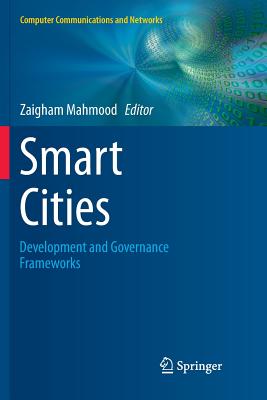Wirelessness: Radical Empiricism in Network Cultures (Hardcover)
暫譯: 無線性:網絡文化中的激進經驗主義 (精裝版)
Adrian Mackenzie
- 出版商: MIT
- 出版日期: 2010-10-08
- 售價: $1,200
- 貴賓價: 9.8 折 $1,176
- 語言: 英文
- 頁數: 264
- 裝訂: Hardcover
- ISBN: 0262014645
- ISBN-13: 9780262014649
-
相關分類:
Wireless-networks、Radio-networks、物聯網 IoT
立即出貨 (庫存 < 3)
商品描述
How has wirelessness—being connected to objects and infrastructures without knowing exactly how or where—become a key form of contemporary experience? Stretching across routers, smart phones, netbooks, cities, towers, Guangzhou workshops, service agreements, toys, and states, wireless technologies have brought with them sensations of change, proximity, movement, and divergence. In Wirelessness, Adrian Mackenzie draws on philosophical techniques from a century ago to make sense of this most contemporary postnetwork condition. The radical empiricism associated with the pragmatist philosopher William James, Mackenzie argues, offers fresh ways for matching the disordered flow of wireless networks, meshes, patches, and connections with felt sensations.
For Mackenzie, entanglements with things, gadgets, infrastructures, and services—tendencies, fleeting nuances, and peripheral shades of often barely registered feeling that cannot be easily codified, symbolized, or quantified—mark the experience of wirelessness, and this links directly to James's expanded conception of experience. "Wirelessness" designates a tendency to make network connections in different times and places using these devices and services. Equally, it embodies a sensibility attuned to the proliferation of devices and services that carry information through radio signals. Above all, it means heightened awareness of ongoing change and movement associated with networks, infrastructures, location, and information.
The experience of wirelessness spans several strands of media-technological change, and Mackenzie moves from wireless cities through signals, devices, networks, maps, and products, to the global belief in the expansion of wireless worlds.
For Mackenzie, entanglements with things, gadgets, infrastructures, and services—tendencies, fleeting nuances, and peripheral shades of often barely registered feeling that cannot be easily codified, symbolized, or quantified—mark the experience of wirelessness, and this links directly to James's expanded conception of experience. "Wirelessness" designates a tendency to make network connections in different times and places using these devices and services. Equally, it embodies a sensibility attuned to the proliferation of devices and services that carry information through radio signals. Above all, it means heightened awareness of ongoing change and movement associated with networks, infrastructures, location, and information.
The experience of wirelessness spans several strands of media-technological change, and Mackenzie moves from wireless cities through signals, devices, networks, maps, and products, to the global belief in the expansion of wireless worlds.
商品描述(中文翻譯)
無線連接——在不確定如何或何處連接物體和基礎設施的情況下——如何成為當代經驗的一種關鍵形式?無線技術跨越了路由器、智慧型手機、上網本、城市、塔樓、廣州的工作坊、服務協議、玩具和國家,帶來了變化、親近感、運動和分歧的感受。在《無線性》中,Adrian Mackenzie 借用一個世紀前的哲學技術來理解這種最當代的後網絡狀態。Mackenzie 主張,與實用主義哲學家 William James 相關的激進經驗主義,提供了將無序的無線網絡、網狀結構、補丁和連接與感知的感受相匹配的新方法。
對於 Mackenzie 來說,與物品、小工具、基礎設施和服務的糾纏——這些趨勢、瞬息萬變的細微差別以及常常難以被輕易編碼、象徵或量化的邊緣感受——標誌著無線性的經驗,這直接與 James 擴展的經驗概念相連。「無線性」指的是在不同的時間和地點使用這些設備和服務進行網絡連接的趨勢。同樣,它體現了一種對於通過無線信號傳遞信息的設備和服務增長的敏感性。最重要的是,它意味著對與網絡、基礎設施、位置和信息相關的持續變化和運動的高度意識。
無線性的經驗跨越了幾個媒體技術變革的層面,Mackenzie 從無線城市出發,通過信號、設備、網絡、地圖和產品,走向對無線世界擴展的全球信念。
















